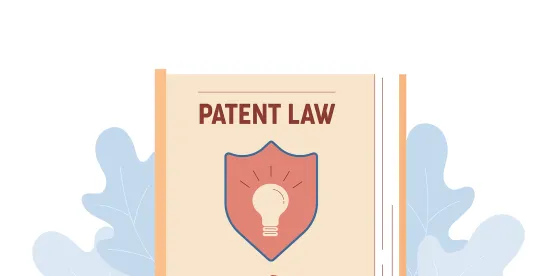Addressing when claimed printed matter is entitled to patentable weight, the US Court of Appeals for the Federal Circuit reversed the Patent Trial & Appeal Board’s ruling involving the printed matter doctrine, explaining that the claimed subject matter was not communicative content. IOEngine, LLC v. Ingenico Inc., Case No. 21-1227 (Fed. Cir. May 3, 2024) (Lourie, Chen, Stoll, JJ.)
Financial technology company Ingenico filed three petitions for inter partes review (IPR) of certain claims from three patents owned by IOEngine, all of which shared the same title and written description. The patents, titled “Apparatus, Method and System for a Tunneling Client Access Point,” claimed a “portable device” that was “configured to communicate with a terminal.” The challenged claims recited a memory that contained program code “configured in various ways to facilitate communication … with a communications network node.”
The Board issued final written decisions, which found the challenged claims to be unpatentable for obviousness or anticipation. The Board also found several claims to be anticipated after giving no patentable weight to certain claim recitations by application of the printed matter doctrine. The Board found that the terms “encrypted communications” and “program code” claim “only communicative content” (i.e., printed matter) and that these recitations were not entitled to patentable weight.
The Board concluded that the recitation of “encrypted communications” was subject to the printed matter doctrine because “nothing in the claim … requires anything beyond sending and receiving data, even if the data is in an encrypted form.” Similarly, the Board found that the recitation “program code” was subject to the printed matter doctrine because the “recital of ‘downloading’ of program code was limited to downloading (sending or transmitting) the code, which is a communication, and no other function is recited in the claim.”
IOEngine appealed, arguing that the Board erroneously construed the term “interactive user interface,” erred in its application of the printed matter doctrine, and erred in its anticipation and obviousness analysis.
The Federal Circuit affirmed the Board’s claim construction, finding IOEngine had forfeited its proposed construction because it did not present it to the Board during the IPR proceeding. Likewise, the Court affirmed the Board’s unpatentability determination of anticipation and obviousness for those claims where the Board did not invoke the printed matter doctrine.
However, the Federal Circuit reversed the Board’s determination that the recitations “encrypted communications” and “program code” were entitled to no weight under the printed matter doctrine.
The Federal Circuit explained that courts use a two-step test to determine whether a recitation should be accorded patentable weight under the printed matter doctrine. First, a court should determine “whether the limitation in question is directed toward printed matter.” Under step one, a limitation should be considered printed matter when the limitation “claims the content of information,” meaning that “the matter [is] claimed for what it communicates.” Only if the first step is met should the court proceed to step two. In the second step, the court considers “whether the printed matter nevertheless should be given patentable weight” because “the claimed informational content has a functional or structural relationship to the substrate.”
In the instant case, the Federal Circuit halted its inquiry at the first step, concluding that neither the “encrypted communications” recitation nor the “program code” recitation was claimed for communicative content. The Court emphasized that “[p]rinted matter encompasses what is communicated – the content or information being communicated – rather than the act of the communication itself” (emphasis in original). In its ruling, the Court explained that restricting claims directed toward communications that do not claim particular content “would impermissibly expand the printed matter doctrine far beyond its current scope.”




 />i
/>i

